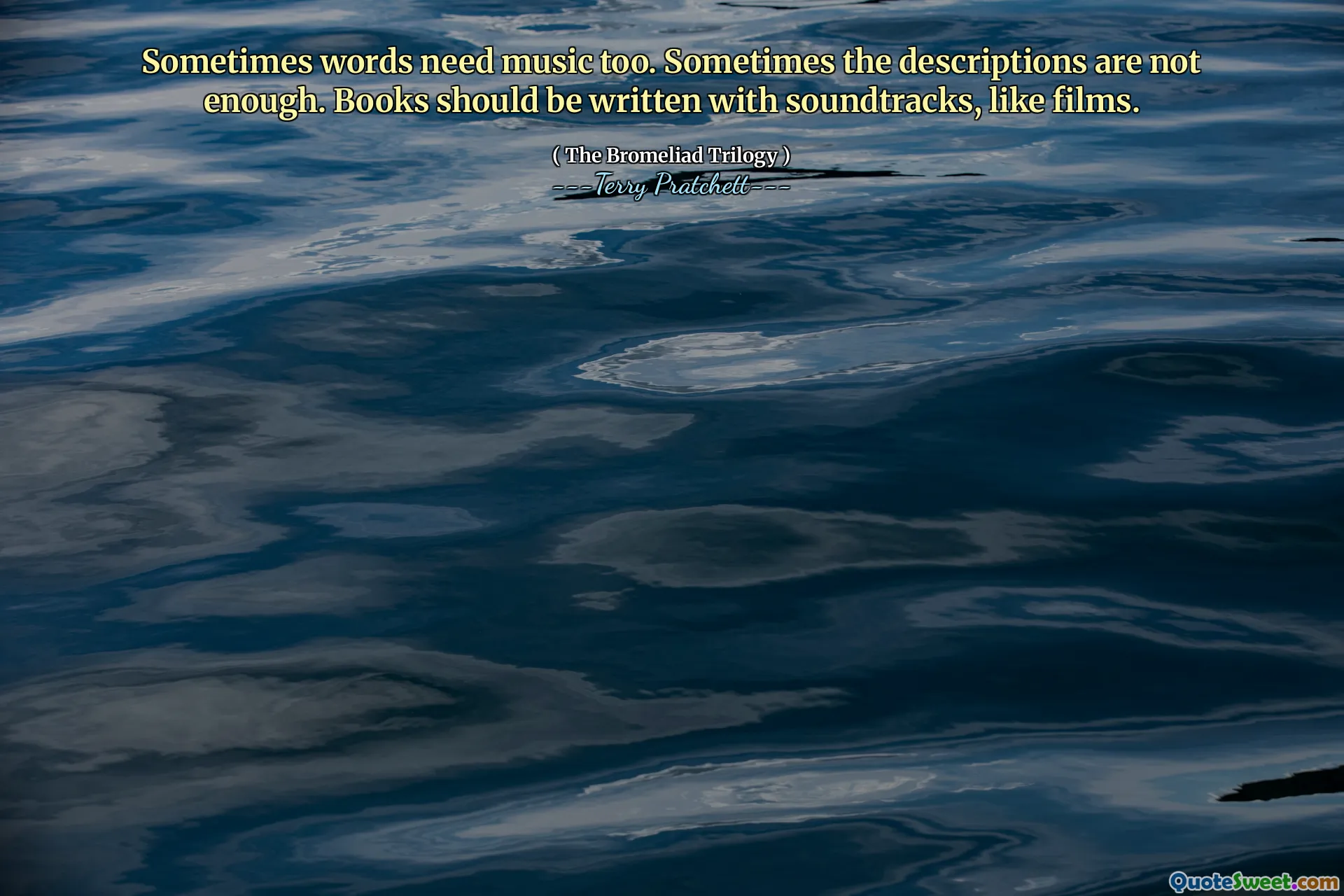
Sometimes words need music too. Sometimes the descriptions are not enough. Books should be written with soundtracks, like films.
This quote highlights the profound connection between literature and music, emphasizing that words alone may sometimes fail to fully capture the depth of emotion or atmosphere a story can convey. Just as a film uses both visual imagery and sound effects to immerse viewers, literature can also benefit from the addition of a sonic dimension. Imagine reading a novel where each chapter is paired with a specially curated soundtrack; the melodies, rhythms, and lyrics would enhance the mood, deepen the emotional experience, and provide an additional layer of storytelling. Music has the power to evoke memories, feelings, and images instantaneously, often making it a more visceral form of communication than words alone. When words fall short, music bridges the gap by offering context or amplifying sentiments, transforming the act of reading into a multi-sensory journey. This concept challenges traditional notions of book design and reading experience, suggesting that integrating soundtracks could revolutionize how stories are consumed—perhaps through immersive audio books or embedded musical cues. It also underscores the universality of music as a language that transcends cultural and linguistic barriers, making stories more accessible and emotionally resonant. As technology advances, the possibilities of merging literature with sound become more feasible and captivating. This idea fuels a future where books aren’t just read with our eyes but experienced through our ears and emotions, creating a richer and more holistic narrative experience.






